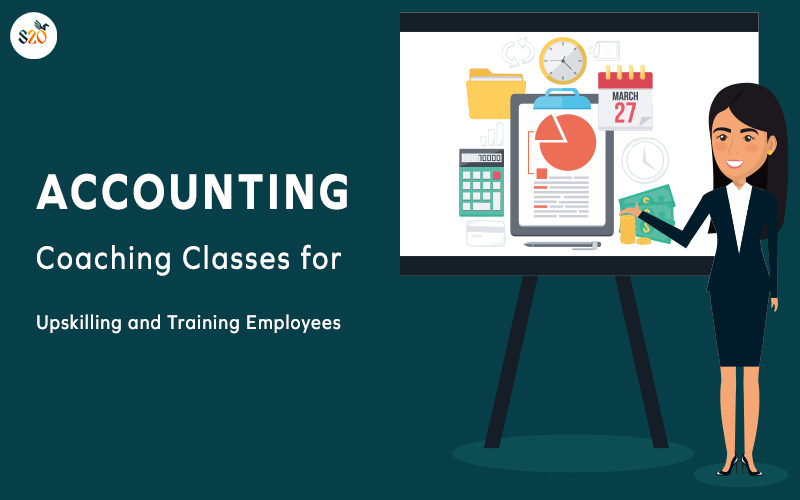Today, most businesses will agree that employees are their biggest assets. Companies invest a lot in terms of hiring the right candidates and then retaining them too. At the same time, employees are also very passionate about their careers. They don’t shy to move on if there is stagnancy in terms of career growth or learning new skills of accounting training. Therefore, to align the interests of both, it is essential for businesses to make significant efforts towards constant development of the employees.
What Do You Coach About?
Businesses usually provide training to impart skills that are essential / required to perform existing jobs. Obviously, this is given; considering you would like to ensure that the employee can perform in the best possible manner in his/her current role.
However, organizations today also invest in ‘Upskilling’. Upskilling refers to the process of teaching new skills to existing employees through academies like Super 20 Training Institute. Such upskilling could also be essential, or in other cases, desirable for employees; which are discussed below.
Is Upskilling Required In Accounting?
Absolutely! In this constantly evolving business environment, accounting concepts and methods are being updated too. Entire accounting framework is being rejigged and new accounting standards are becoming applicable to the business. Fo example, accounting software (like Tally) is being updated to incorporate changes in laws like GST and so on. In such a scenario, providing training to employees is definitely the need of the hour! Training academies offers excellent accounting coaching classes in Ahmedabad, suitable to different coaching needs.
Whom To Upskill In Accounting?
Upskilling could be classified into two categories. One, teaching those skills which are essential to the changing work environment. For instance, training the existing accounting personnel about the new accounting standards applicable to the organization would be absolutely essential.
Second category could be teaching those skills that may not appear exactly essential to the existing role at hand, but could go a long way in improving efficiencies. For example, familiarizing tax team about the new accounting concepts, accounting software offering Tally courses, would help them in gaining a better understanding. And this will eventually reduce their dependence on accounting team. Sometimes, it could be essential too, say when the tax team needs to understand the applicability of ICDS and how they diverge from accounting standards that the organization follows. In either case, it improves employee morale as he feels he is learning something new and challenging.
A lot of corporates have in-house L&D (Learning & Development) team. Others may tie up with a dedicated accounting academy for this purpose. In either case, the importance of upskilling employees cannot be emphasized enough.








